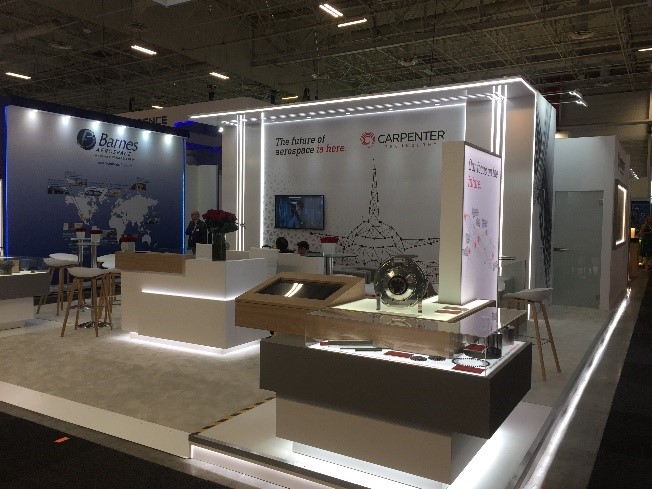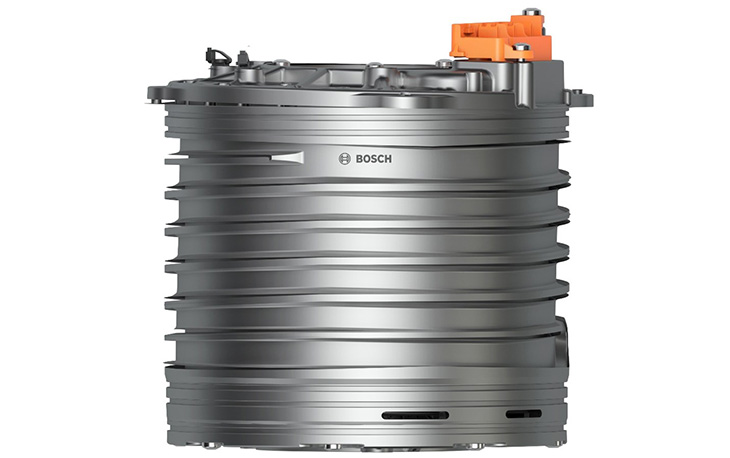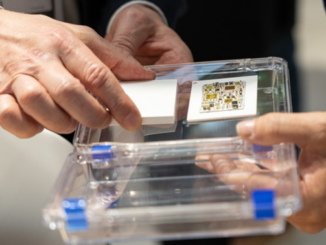
Aiming to provide advanced soft magnetic expertise and ultra-efficient electrical components, Carpenter Technology has unveiled a new strategic intiative to support the aviation industry’s transition to electric aircraft. At the Paris Air Show (pictured above) at Le Bourget in June, the company announced its involvement with multiple OEMs to progress their electric aircraft aspirations.
Carpenter will provide advanced soft magnetic expertise and ultra-efficient electrical components to be used in research and development including demonstrator motors and engines, leading to construction of lighter-weight, longer-lasting electric propulsion systems, the company said. Alongside its partners, the company’s stated goal is to enable development of the highest power density motors available.
“As the industry leader in electric propulsion material solutions, we are well positioned to support the development of electric systems to power the aircraft of tomorrow,” said Marshall Akins, Carpenter’s vice president, aerospace markets. “Our long history and comprehensive knowledge of how to develop and process these type of material solutions and then translate them into finished components so they function successfully will continue to be a key contributor to our customer’s success.”
Carpenter’s portfolio covers a range of solutions from maximizing magnetic performance to optimally balancing yield strength and core loss in rotating components. Already a leading producer of soft magnetic materials, the company recently announced a $100M investment in a precision strip mill to expand its soft magnetic capabilities to serve aerospace and other industries looking to realize the benefits of electric power.
At the show, Carpenter also announced two specific product development deals with aviation companies. It will cooperate with Belgium-based BMT Aerospace in the development of an additively manufactured aerospace pinion, using one its stainless-steel alloys. It will also work with Israel Aerospace Industries to produce additively manufactured components for a serial production commercial aircraft. This collaboration will result in the aircraft company’s first metallic additively-produced parts. They are expected to provide significant manufacturing benefits and lay the groundwork for future design improvements and enhancements. IAI is working closely with Israel’s Civil Aviation Authority for approval of the parts, marking the first time this technology has been approved for commercial use in Israel.
For more information, visit: www.carpentertechnology.com



